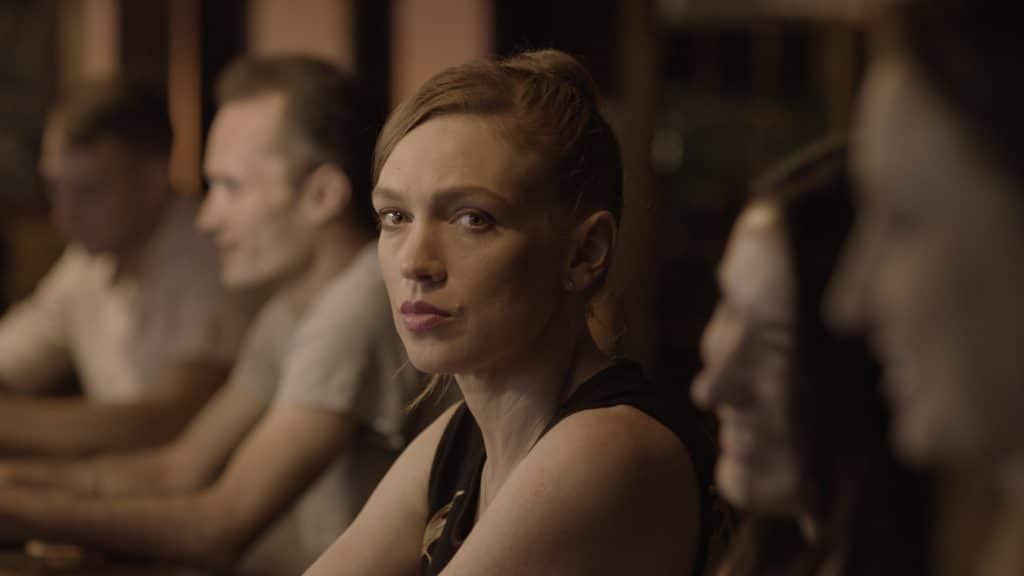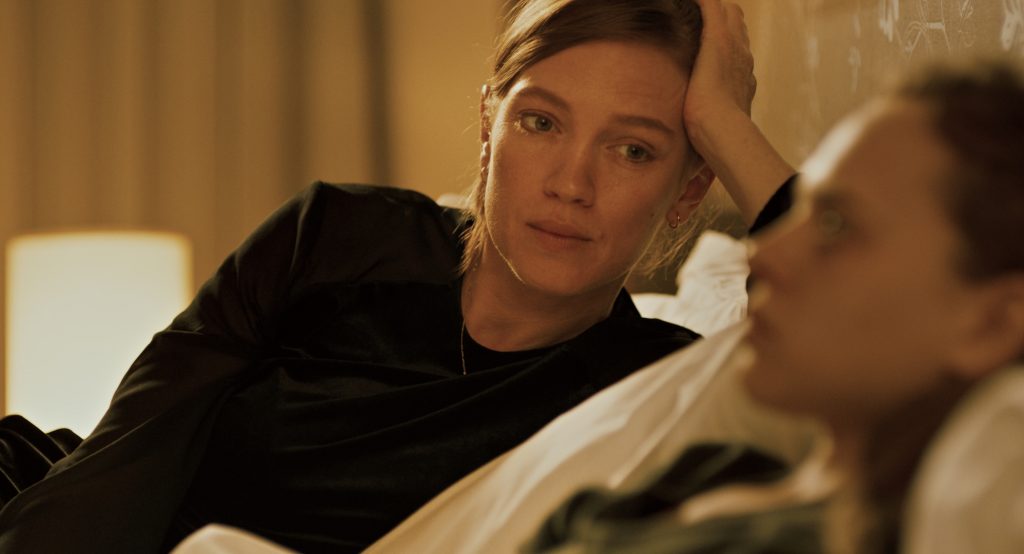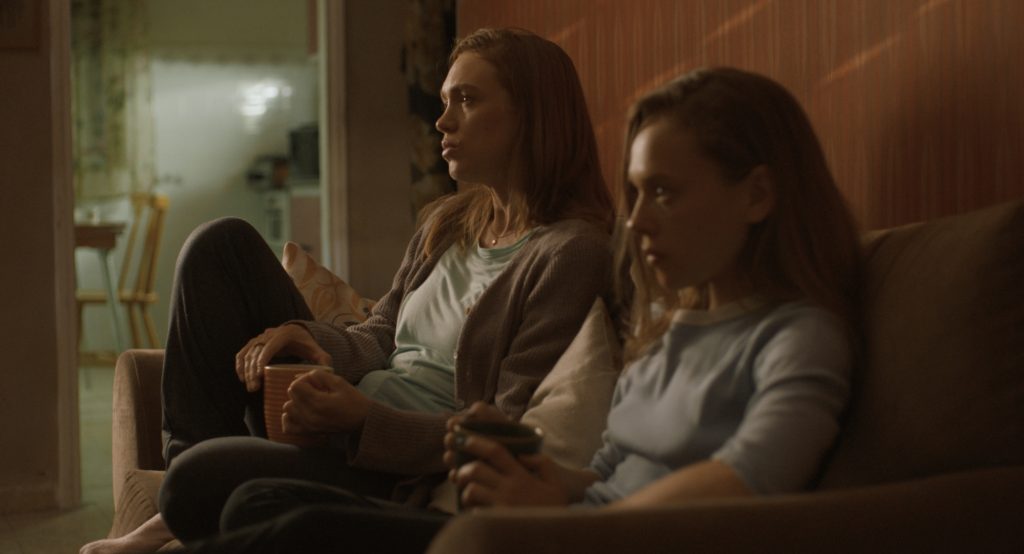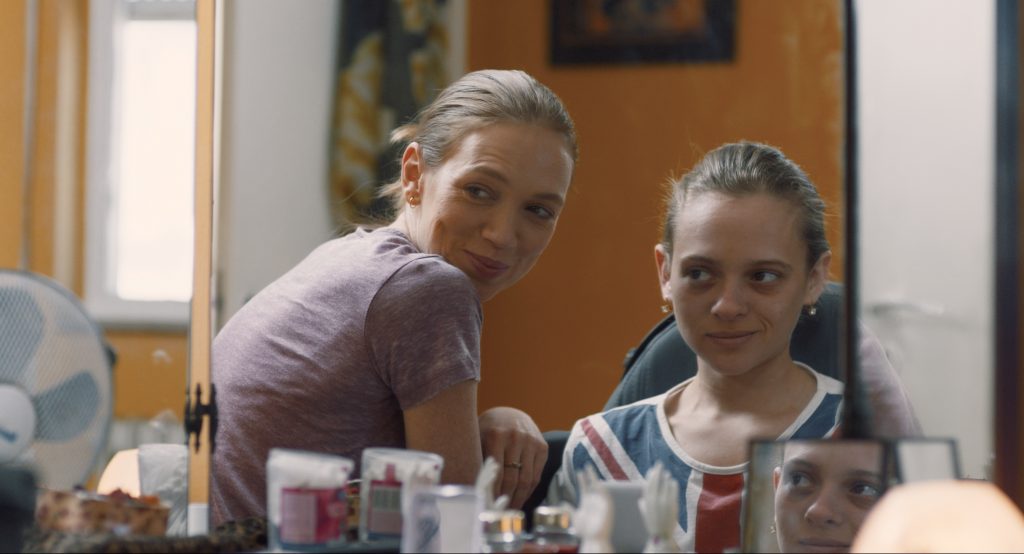Read also:
How to Watch FX Live Without CableHow To Watch AMC Without CableHow to Watch ABC Without CableHow to Watch Paramount Network Without CableThe director-writer & star of Asia talk death, love & the immigration experience.
A mother, her rebellious teen daughter, and an illness. It’s a story that’s been done and redone so many times that it’s basically become a subgenre. But in Ruthy Pribar’s feature directorial debut Asia, a tender and devastating character study about motherhood and loss, everything about the subgenre gets rejuvenated. Not because it breathes a new life into it, but because it tells the story in an understated way, with a level of realism that recalls the works of the Dardenne brothers more than it does The Fault in Our Stars.
The titular character, Asia (Alena Yiv), is a 35-year-old single mother who immigrated herself and her daughter from Russia to Israel years ago to start a new life. By day (and sometimes night), Asia works tirelessly as a nurse. But when she’s not taking care of her patients, Asia likes to spend time at a bar, drinking alone and flirting with strangers, or having sex with her colleague in his car as if she’s still a teenager.
It’s clear that Asia is still yearning for the youth that was taken away from her when she had a daughter at a very young age. And it’s not just because of her late-night fun sessions, but also because of the obvious distance she has from her 17-year-old, Vika (Shira Haas), as if she resents the fact that she’s now a parent.
However, that changes when we learn that Vika suffers from a degenerative motor disease, whose condition gets worse with each passing day. Not only is Asia forced to rethink her own motherhood, but she also needs to find a way to repair the broken relationship she has with Vika.

Pribar, with an assured direction, tenderly observes Asia and Vika as they try to come to an understanding and their bond deepens. The film never once falls into melodrama or resorts to sentimentality. What results is an understated story about how, even in a dark place, there’s still beauty and light.
We recently had the pleasure of speaking to director-writer Ruthy Pribar and star Shira Haas about the movie, its powerful final moment, and finding love and acceptance in a hopeless situation.
I want to start with Ruthy. Asia is your first feature film, and it is such a powerful and beautiful debut. On one hand, it touches on the difficult subjects of death and grief, yet on the other hand, it’s also about love and a celebration of the small moments in life. Can you tell me how the story came about?
Ruthy Pribar: I’m very happy that it came through that way. Yes, it’s a film about death and loss, but it’s also about celebrating the small moments in life and the love that is shared between a mother and her daughter.
The idea of the story came from a very personal experience, which is the loss of my older sister that happened 15 years ago. And this is something that affected me greatly and really made me think about what we want in our lives. How we want to cherish all these moments we share with our loved ones along the way.
When writing the script, I started at the ending and then went back to how this relationship between a mother and her daughter evolves, how it gets to the point where they become inseparable.
Pribar, with an assured direction, tenderly observes Asia and Vika as they try to come to an understanding and their bond deepens.
Shira, what drew you to the role and the film?
Shira Haas: Before I even finished reading the script, I had this feeling in my head that said, “How can I make Ruthy understand that I have to do this movie?” It’s not because I think that I’m the best actress for the role, but because I have this inner feeling within me that I have to tell this story and this character’s journey.
I know it may sound like a cliche when an actor says that they cry while reading a script, but that’s really what happened to me. The script moved me and had me in tears. And I’m not an easy crier — I might be on screen, but in real life, I don’t cry easily. But it just touched me very very deeply.
As you said, it is a story about grief and loss and a lot of other tough subjects too, of course. But it’s also about love and empathy and connection and understanding what we have. And I think when a movie can show light through darkness, that’s the highest form of art.
Vika’s a role that not only requires intense emotions, but also challenging physicality, especially towards the end when her condition gets worse. How did you prepare for that?
Haas: The illness is not the center of the story, but still, it’s very important for both of us that we get everything as accurately as possible. So before filming, Ruthy and I did a lot of research. Anything I could read or watch online about the illness, I did. We also met a woman in real life who has the same disease, and we met with a couple of doctors too to talk about the condition. We also had this chart that shows what stage of the illness that Vika exactly is in at each scene. We researched everything even until the smallest and most specific detail because we really want to get it right.
Of course, I would never fully understand what it feels like to have a condition like that, but I really tried my best to portray it as accurately as I could. It’s really until the point where you tell me the number of the scene and I can tell you what happens and what Vika’s condition is on that scene.
It was always important to me that we got specific with the physicality, because it affected the emotional part of the story. But once we’re shooting, I tried to not overthink about it too much cause I want to get everything as organic as possible.

Is finding two lead actors who look the same something that you set out to do from the beginning?
Pribar: When I was writing the script, I knew that I wanted two actors who look the same for the roles. A lot of times when you watch a movie you have a mother and a daughter or siblings who don’t really resemble one another, but you believe that they are because the movie says so.
But I didn’t want it to be that way with Asia — there’s something about their resemblance and the fact that the age gap between them is small that made you think about what and how would she be like when Vika would be her mother’s age. And because they resemble one another so much, you compare them. That’s so important to understanding why they’re so detached in the beginning.
You wrote Asia and Vika as Russian immigrants. What’s the significance of that background?
Pribar: I knew I wanted to talk about a mother and daughter that grow closer together not just because of illness but also because they have no other choice. They won’t have a circle of friends or family to go to, so they will really have to rely on one another until the very end. And that’s something that can be achieved by them being immigrants.
There’s such a large Russian community in Israel. So when I knew that these two characters were gonna be Russian, I went on to learn the language, which was not an easy task at all. [laughing] I can’t say that I know Russian because it’s a really difficult language. And it turns out, I’m not so good at learning new languages, but I learned enough and understood what they’re saying and it made it easier when I got into directing.
I read that the film was shot in non-chronological order, as is often the case with most and even all films. But Asia is the kind of film that has a very specific arc and progress, both narratively and emotionally. Did that prove to be an additional challenge?
Haas: To be honest, I don’t remember any projects that I did in chronological order, but with Asia, it was more challenging because the movie has a very specific and detailed arc. We have to follow Vika’s condition and what stage of the disease that she’s in to make sure that it ends up believable.
We had a lot of rehearsals before filming began, which made things easier later on. We rehearsed every scene for months, down to the specific details. We not only used the time to do rehearsals but also to get to know each other and build rapport with one another. What helped even more is that everyone was so dedicated and committed to the project.
I love how specific the script is. There is not one thing in the movie that doesn’t have to be there. Every piece, even the season that the movie takes place, is important. Everything has a reason. Even though we didn’t shoot the film in chronological order, that specificity helped me immensely.

The cinematography has a lot of natural light; and even though the scenes mostly take place in Asia’s apartment or in the hospital, your cinematographer, Daniella Nowitz, always finds a way to make each scene visually breathtaking. How did you and Daniella approach the film in terms of the visual language?
Pribar: Daniella and I were always talking about how the movie deals with a lot of difficult subjects and how, in a way, it’s very dark. For that reason, we wanted the movie to be full of light and beauty. Even in the ugliest situation, there is a way to look at something that’s beautiful; that’s what I want the movie to convey.
This is why we wanted to have the story that the cinematography was telling, which is the same story that we told in the actual film: a story about finding beauty even when nothing beautiful is there. You see that in the way that the scenes are shot and the way the actors are moving within the frame. Daniella has really done an incredible job with the cinematography. She’s really amazing.
When it comes to films about terminal illness and dealing with death, most directors tend to lean heavily towards sentimentality and melodrama. But with Asia, everything is always kept as understated as possible. How did you maintain that level of subtlety and realism
Priba: There’s something that’s funny about the way I write or direct. Sometimes I would tell myself, “Oh, this is too sentimental.” But then I have to remind myself that the way I direct is so un-sentimental so that I can push to my limit and it would be okay. [laughing] I guess it’s just the way I see life. I have this inner border inside me that tells me, “Okay, this is as far as I can go.” So throughout the filming, I was never really worried about this film being too sentimental.
Well, there was one scene that I was a little worried about. It’s the scene with the wheelchair. I kept asking myself, “How can I make this not too pushy?” because I was not sure how I was gonna pull it off. But in the end, it’s not too pushy or too sentimental. And I’m glad that it’s not. But it’s always good that you have something that you’re worried about, because it makes you a better director.
One line that stays with me is when Asia tells Vika, “The only thing I got from a man is you.” Can you tell me what you wanted that sentence to capture?
Pribar: That line had actually been rephrased a couple of times and translated to a few languages. In the beginning, I wrote it as: “The only good thing I got from a man is you.” But then I took out the ‘good’ because Asia is not sure that it’s a good thing. And it’s not that she thinks it’s a bad thing; it’s more complicated than just good or bad.
As a mother, Asia is flawed, just like every human being; she’s just not been able to feel at ease with her motherhood and with where she is or what she accomplished. Nor the relationship that she was able to form with men or with her daughter.
But in a way, she realizes at that moment that this is what she has, this is what she needs to put her attention on now. She needs to be a better mother not just because her daughter needs it, but because she needs it. This is a turning point in the film and in the relationship. I understand why a lot of people are drawn into this line; it really brings out the character in such an interesting way.
It’s always good that you have something that you’re worried about, because it makes you a better director.
The film ends on a devastating note, but it’s also so powerful. What was it like to shoot that scene?
Haas: It was a very emotional day; it was filmed in the middle of the shooting, so we still have the next several days to continue filming. We didn’t fully rehearse the scene, because Ruthy decided to keep it for the actual filming, which was smart because it makes the emotions more natural for the scene.
I remember that inside the room there was only Alena, myself, Daniella, Ruthy, and one person from sound; the rest of the crew were outside. It was very magical. I almost forgot that there are other people in the world besides Alena and me, not even Ruthy. And after finishing the scene, I was walking out of the room and I saw everyone sobbing and crying. It was so emotional for everyone.
After the scene, I was sitting next to people from the production while waiting to shoot for the next scene. I heard them talking about what they needed to do for the next day, and I was like, “Wait a second, how can you talk about tomorrow after what we’ve been through?” [laughing] Shooting the final scene was a very powerful and meaningful moment for Alena and me. Not just in the scope of the movie, but also in our careers.

And Ruthy, what’s the main key in making sure that the final scene unfolded the way you wanted it to?
Pribar: I could not fully write the scene within the script; it was mostly just a description of how I wanted the scene to be. I knew what was gonna happen, but writing it in the script was so difficult for me that I kept postponing it until it was impossible not to. What I knew from the start was that I wanted the scene to be full of light and, in a way, uplifting.
Difficult as it was for Asia, what she did in that scene was the ultimate act of love. It’s something really spiritual — I’m not talking about god or about religion, but being as close to yourself and to your loved one as possible.
While shooting the scene, I was just so absorbed in it with my actresses. I was just crying and holding on together with them — Shira and Alena were just so exceptional. In general, when I direct and I’m feeling something and get lost inside the scene, then I know everything is working. With this scene, I really could not imagine it being better than it was.
If you could program a double feature to watch with Asia, what movie would you pick?
SH: [laughing] That’s your job, Ruthy. You think about it.
RP: I don’t know, it’s a difficult question. [laughing] If you want a film within a similar world, would that be too depressing? But I would say, one of my biggest influences is Three Colours: Blue by Krzysztof Kieślowski. I don’t think the storyline is by any means similar, but it’s a film that also deals with loss and about finding who you are and what is important to you.
I would say that this film and Asia are speaking about human resilience and finding love within your life. Maybe it would be too much, but I love seeing it. I have no problems watching dramas, even the sad and the depressing ones. So yeah, double feature, let’s cry together.
Asia will screen at Film Forum in New York City June 11th.